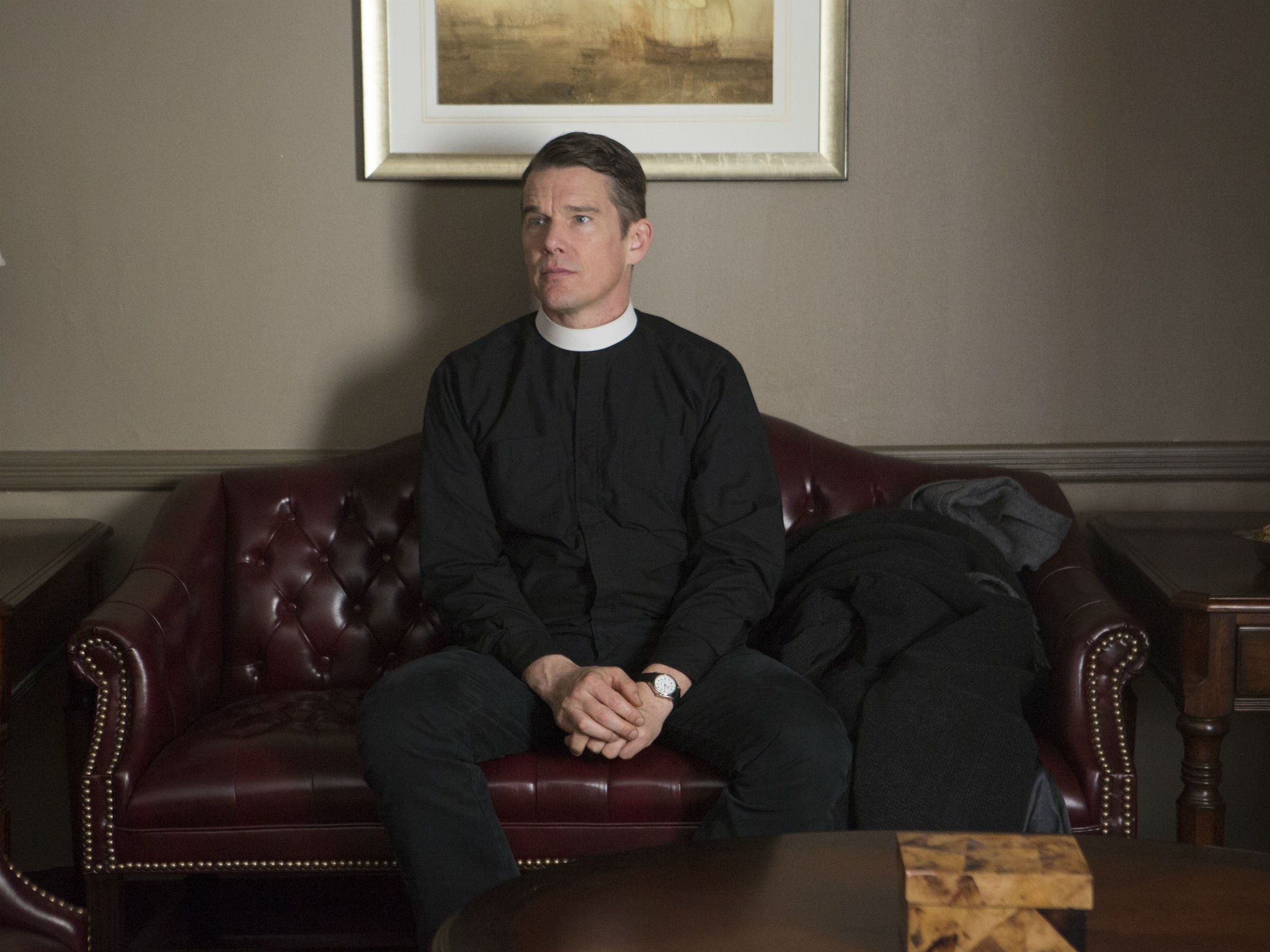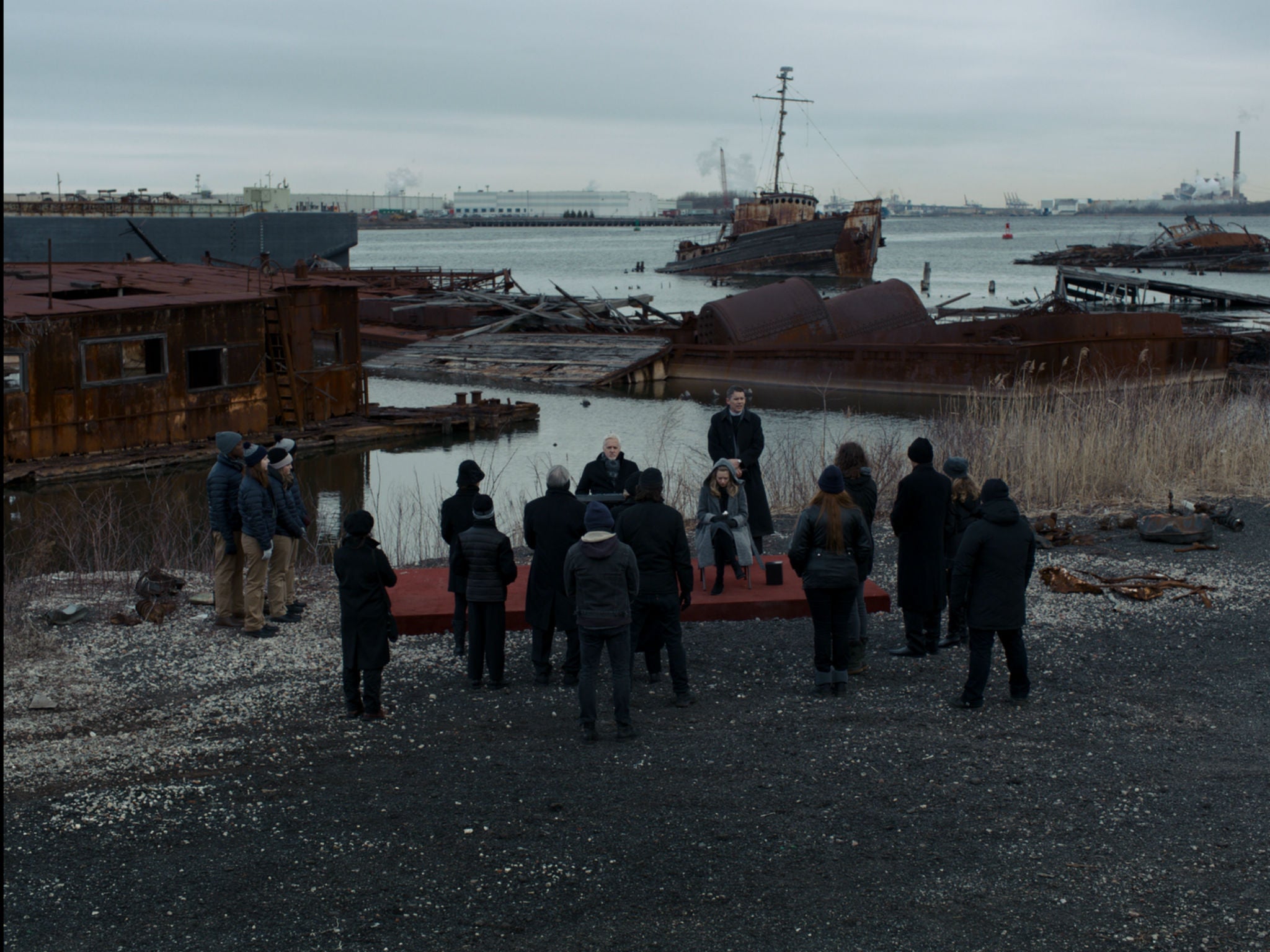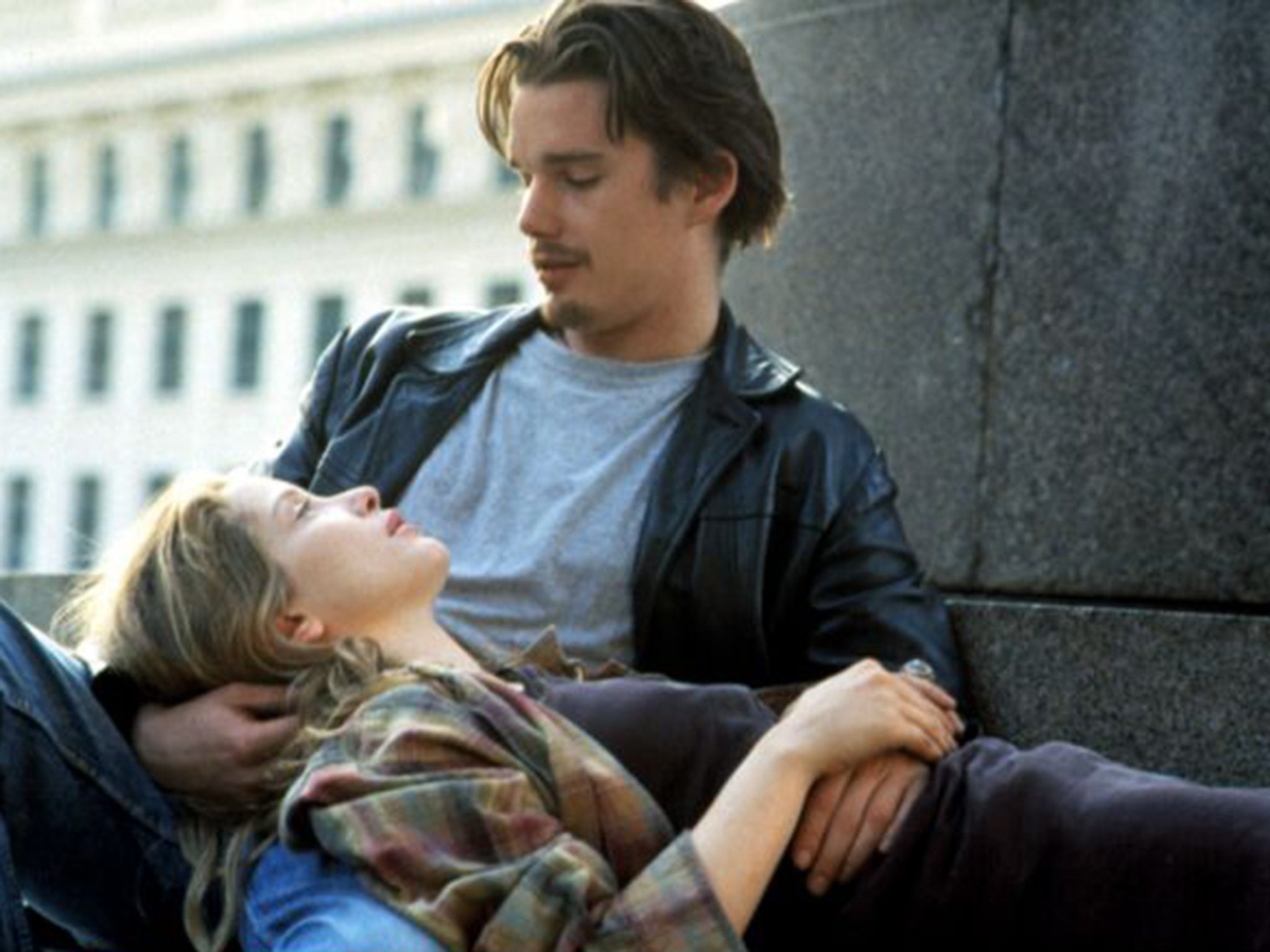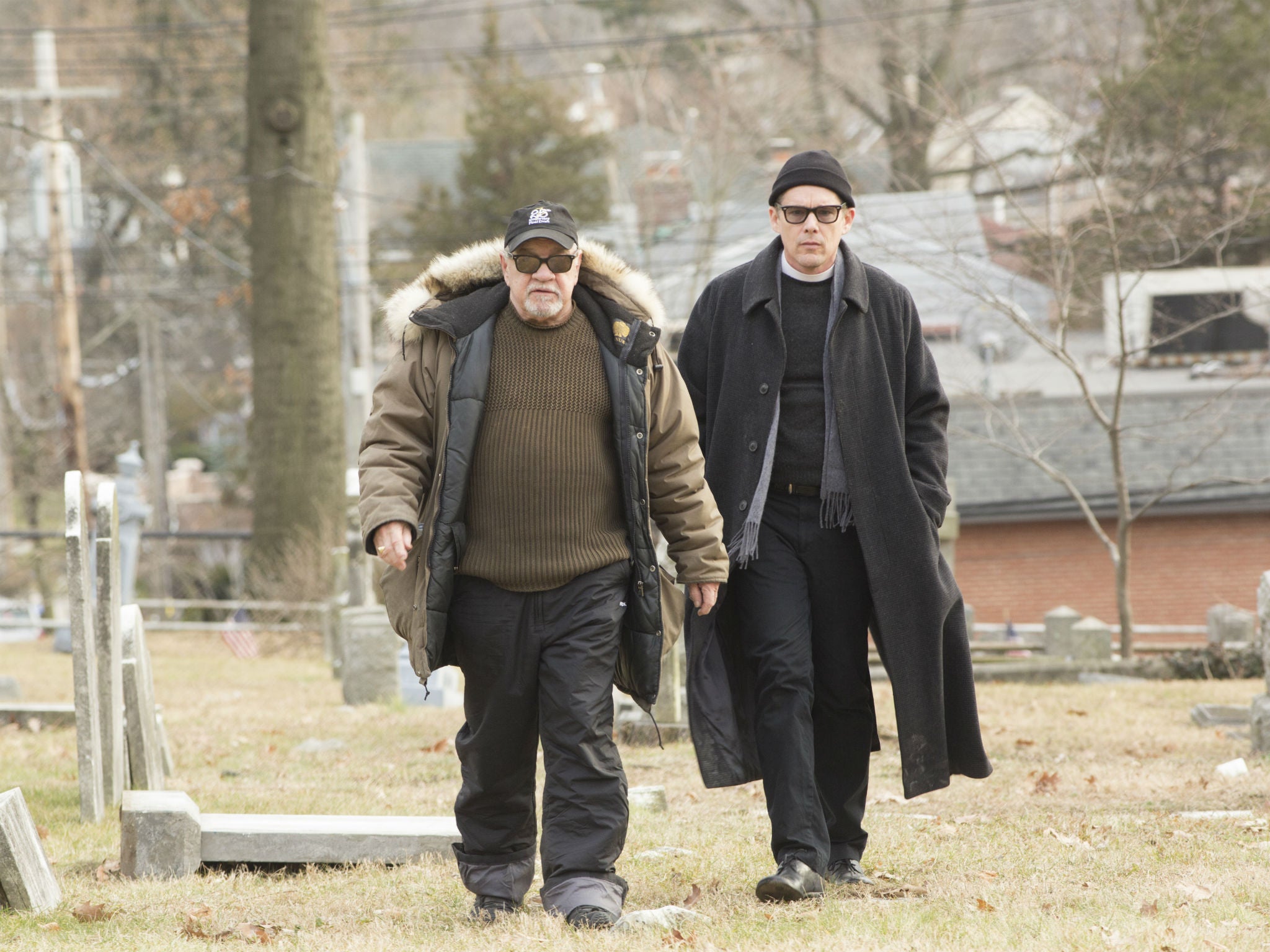Ethan Hawke on playing a tormented priest: 'I put all my fears and disappointment into this role'
The actor gives a stunning performance in Paul Schrader's new film – a part he feels his whole career has been building to

Your support helps us to tell the story
From reproductive rights to climate change to Big Tech, The Independent is on the ground when the story is developing. Whether it's investigating the financials of Elon Musk's pro-Trump PAC or producing our latest documentary, 'The A Word', which shines a light on the American women fighting for reproductive rights, we know how important it is to parse out the facts from the messaging.
At such a critical moment in US history, we need reporters on the ground. Your donation allows us to keep sending journalists to speak to both sides of the story.
The Independent is trusted by Americans across the entire political spectrum. And unlike many other quality news outlets, we choose not to lock Americans out of our reporting and analysis with paywalls. We believe quality journalism should be available to everyone, paid for by those who can afford it.
Your support makes all the difference.It’s the barbed wire Ethan Hawke’s character wraps around his own body that makes the final scenes of Paul Schrader’s First Reformed so painful to watch.
Hawke plays Ernst Toller, a priest with a masochistic and very destructive streak. He is a soul in torment, one of Schrader’s “men alone.”
He is also as far removed from the laid-back types Hawke played in his early movies, like Reality Bites (1994) or Before Sunrise (1995).
The film takes place in a small, seemingly sleepy community in Upstate New York. The local church is about to celebrate its 250th anniversary. Toller, the parish pastor, is still grieving over the death of his son in the Iraq War.
A deeply spiritual man, he is appalled by the pollution and corruption on his doorstep. The church was once a stop on the underground railroad that helped slaves escape to the north but now, he feels, it has lost any meaningful connection to the needy and oppressed.

“Can God forgive us for what we’ve done to the world?” he laments on screen.
Interviewed at the Venice Film Festival shortly after the premiere, Hawke cheerfully explains that he relished the opportunity to play the tormented priest – and to work with Schrader, the writer-director behind films such as Taxi Driver (1976), Cat People (1982) and American Gigolo (1980).
“As soon as I read [the script], I felt that it should be published. He [Schrader] was giving a voice to something that I myself was feeling and that a lot of people in my family were feeling,” he says. “It is a kind of cry or a plea. Whether it is a plea of despair or hope, I am not really sure – and that is what I love about the movie.”
Hawke talks in general terms of “the tremendous amount of anxiety” since it became apparent, after Hiroshima, that humankind had the ability to destroy the planet. First Reformed taps into this anxiety, while also exposing the inner crisis that Toller is facing.
Hawke likens the pastor to John Brown, the abolitionist who used armed force to try to end slavery in the 17th century; we see Toller don a suicide vest, considering violent action.

Watch Apple TV+ free for 7 days
New subscribers only. £8.99/mo. after free trial. Plan auto-renews until cancelled

Watch Apple TV+ free for 7 days
New subscribers only. £8.99/mo. after free trial. Plan auto-renews until cancelled
“It’s weird to be a jihadist on the right side of history, which is what John Brown was. He was still a lunatic in many ways but he was a lunatic on the right side of history. It is no coincidence that Paul Schrader’s setting is this church which was a beacon of the underground railroad.”
Audiences may think of Hawke as the effortlessly charming protagonist in his friend Richard Linklater’s films, or of the tabloid figure once married to Uma Thurman. However, he has played his share of darker roles in recent times too.

He was very impressive as the self-destructive junkie musician, Chet Baker, “the James Dean of jazz,” in Born To Be Blue (2015); he was also surprisingly convincing as the old curmudgeon and loner who begins an unlikely romance with his artistically-inclined cleaner, played by Sally Hawkins, in Maudie (2016).
But Toller in First Reformed is surely the most extreme role he has played, a conflicted personality with an unexpected capacity for violence. Hawke excels in a film which makes huge demands on him.
“I had never played a priest but when I was born, my great-grandmother felt certain that I was going to be a priest,” Hawke, now 47, recalls. “She used to tell me I had to listen for the calling. I was petrified because I didn’t want the calling to be a priest; I wanted to be in the arts.”
He grew up in Texas and New York, with a family that is “seriously” religious. On his father’s side, they are Baptists. His mother is Episcopal and his stepfather is a Catholic. “I had zealots on all side of me!” he jokes.
As a youngster, Hawke took the religious fervour around him and poured it into art: “That’s been the church of my choice – movies, books, rock and roll. That’s where I found the most sanity.”
His early dream had been to be a writer, but this changed when he drifted into acting at high school.
As his career progressed, Hawke tried to console his great-grandmother by telling her that if he couldn’t be a priest for real, he’d still be able to play one on a stage or on the screen sooner or later. 30 years after he entered the business, he has finally been true to his word.

He takes his place alongside Montgomery Clift in Alfred Hitchcock’s I Confess (1953), Gunnar Björnstrand in Ingmar Bergman’s Winter Light (1963) and Brendan Gleeson in John Michael McDonagh’s Calvary (2014) in the list of actors who’ve portrayed men of God, wrestling with their faith.
Schrader describes Hawke as a natural fit for the role: “You can just read into him all of those attributes. He doesn’t have to act haunted. He is, by his physiognomy, and also by his age. The boyishness has gone.”
Schrader adds that his lead actor “is a real intellectual. He’s a writer and director. You deal with him at a different level than you deal with any other actor because you’re talking with a fellow artist.”
Hawke knew that this was a deeply personal project for the director, who comes from a strict Calvinist background himself.
“It is such an authentic part, such a sincerely written part. Paul will tell you that this film has been gestating in him probably his whole life,” Hawke reflects. “In a similar way, I feel this role is one that a lot of previous roles have prepared me to play.”
As for the extraordinary finale, in which the masochistic priest lacerates himself with the barbed wire vest, Hawke found the scene surprisingly easy.

“I think that most people who are cognisant, it’s not much work for them to feel a sense of despair. That is not far from us at any given moment. Self-loathing is sadly something that comes pretty easily to human beings,” he suggests with a wry smile.
“We disappoint ourselves so much about what we feel we are capable of and the person we want to be,” he says, warming to his theme. “We’re not sure whether it’s [because of] our own shortcomings or society’s shortcomings that we can’t be the person we want to be. All that is Reverend Toller’s experience.”
It’s easy to feel sceptical when a successful, good-looking Hollywood star holds forth during a press junket about the job-like miseries and disappointments he endures in his day-to-day life. Hawke, however, appears to be sincere: he talks of his “overwhelming gratitude” to Schrader for casting him, and giving him the chance to “put all my fears and disappointment and anxiety into this role. It gave me focus in my life.”
Hawke drew heavily on his own religious upbringing: “This movie gave me an opportunity to [use] what I’ve learned and what I’ve been thinking about, what my parents have been talking about, my brothers and sisters, for my whole life. All of that vibrated in the walls of this movie.”
Showing his versatility, he has followed this ambitious project with a role as an ageing indie rocker in the Nick Hornby adaptation, Juliet, Naked (2018) and by playing the sheriff Pat Garrett in Dane DeHaan’s upcoming western, The Kid.
He’s been awarded a total of four Oscar nominations and also just received the “Excellence Award” at this year’s Locarno Festival – a sign that the youngster who made his acting debut at age 14 in Joe Dante’s sci-fi fantasy Explorers (1985) can now be classified as a veteran.
One prediction can now safely be made, however. Whenever retrospectives are held of his work in future, First Reformed will be very prominent on the schedule.
‘First Reformed’ is released 13 July in the UK.
Join our commenting forum
Join thought-provoking conversations, follow other Independent readers and see their replies
Comments